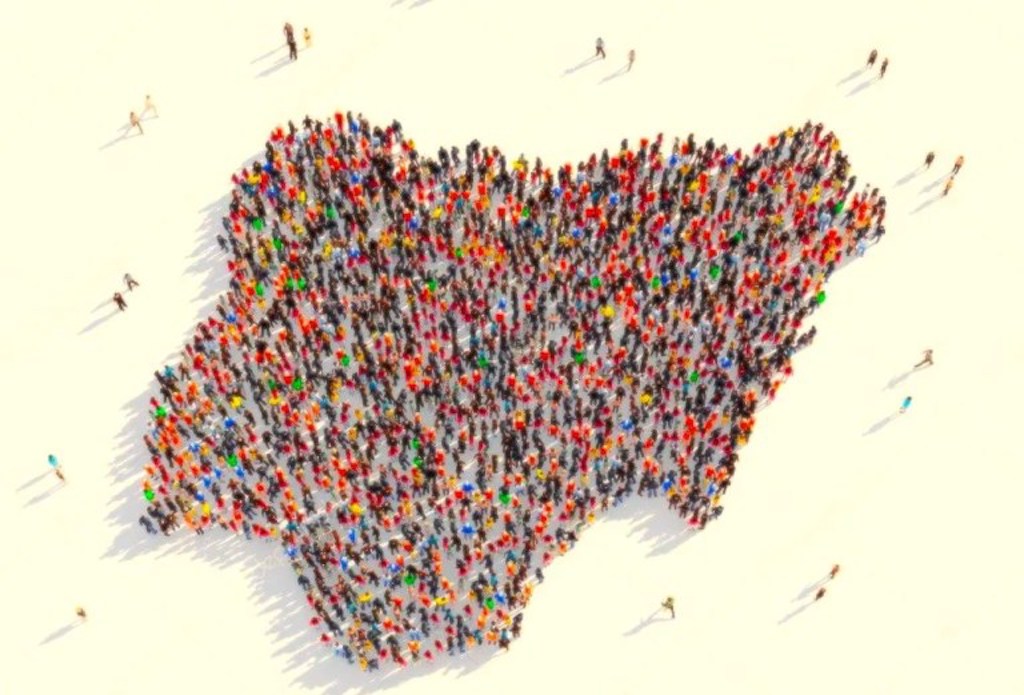Why Nigeria Really Needs Another Population Census, By Olatundun Tejuoso

Quality policy-making, planning, administration and decision-making are the foundations of stable and developed nations. But the eccentricities of governance in today's world mean that national development must be based on well-collected and up-to-date data. This is where a population census comes in. With the upcoming population census in 2023, Nigeria could solve much of its national puzzle with data guiding its resource allocation…
Data, big data, rules the world. At the heart of our collective prosperity are tons of ones and zeros that underpin modern power brokering, policy formulation, and optimal decision-making. Data is the primary resource drawn from responsive governance, people-centered politics and the quest for national development.
Good data management leads to sound policies, which make for stable nations. Yet data – the heart of information and inference – is not just discovered by chance. There is a science (as there is an art) to data collection. On national and international fronts, the collection and “mining” of data is more pronounced as nations seek to better understand the panorama of people, territories and social phenomena.
Throughout history, nations have needed to mine the rich data ore that their citizens present and population censuses have always been the most reliable reference. Population censuses have helped nations paint integrated pictures of ever-changing societies, while providing appropriate and extensive databases for comparison and projections of demographic and psychographic data.
Population censuses far outweigh other statistical methods of collecting national data. With a population census, social and economic characteristics from the highest to the lowest administrative or geographic levels are revealed, overlaps and intersections between the public and private sectors are laid bare, long periods of development are easily and precisely followed, and the recurring events and dynamic patterns of national life are revealed. Indeed, a population census allows a nation to reflect and understand itself.
Population censuses have spanned civilizations. History traces the origin of population censuses to the 17th century, in the quest for a better allocation of resources. Ireland has carried out population censuses since 1841. India had its first census in 1872, while the United States had its first in 1790. Africa is not out of the fray either, South Africa having conducted its first census in 1911 and Nigeria having its first. in 1866.
Nigeria's population censuses do not paint a perfect picture. From 1866 to 1991, censuses in Nigeria were marred by restrictions, falsification of gerrymandering figures, deliberate falsification of census figures, disruption caused by political instability, ethnic clashes and shortage of personnel qualified and technical know-how for data collection and management. .
It is unthinkable that Nigeria would continue to make its decision using a database dating back to 2006. The 2006 census pegs the population of Nigeria at 140 million. Today, the United Nations disagrees, estimating Nigeria's population well above 200 million, given its ongoing population explosion. As such, one could infer that Nigeria does not have a clear estimate of its population. This resulted in an unfavorable delay and failure…
The last population census that Nigeria conducted in 2006 was considered fair, compared to previous ones, as it was the first population and housing census in the country. The 2006 census was conducted using Global Positioning System and satellite imagery to map geo-referenced EAs, and it was a first for Nigeria. Yet allegations of irregularities and falsified figures further marred the 2006 census. Since 2006, Nigeria has not conducted another population census. Africa's most populous country is four years behind its census. By implication, Nigeria has yet to reflect in more than 15 years.


Quality policy-making, planning, administration and decision-making are the foundations of stable and developed nations. But the eccentricities of governance in today's world mean that national development must be based on well-collected and up-to-date data. This is where a population census comes in. With the upcoming population census in 2023, Nigeria could solve much of its national puzzle with data guiding its resource allocation…
Data, big data, rules the world. At the heart of our collective prosperity are tons of ones and zeros that underpin modern power brokering, policy formulation, and optimal decision-making. Data is the primary resource drawn from responsive governance, people-centered politics and the quest for national development.
Good data management leads to sound policies, which make for stable nations. Yet data – the heart of information and inference – is not just discovered by chance. There is a science (as there is an art) to data collection. On national and international fronts, the collection and “mining” of data is more pronounced as nations seek to better understand the panorama of people, territories and social phenomena.
Throughout history, nations have needed to mine the rich data ore that their citizens present and population censuses have always been the most reliable reference. Population censuses have helped nations paint integrated pictures of ever-changing societies, while providing appropriate and extensive databases for comparison and projections of demographic and psychographic data.
Population censuses far outweigh other statistical methods of collecting national data. With a population census, social and economic characteristics from the highest to the lowest administrative or geographic levels are revealed, overlaps and intersections between the public and private sectors are laid bare, long periods of development are easily and precisely followed, and the recurring events and dynamic patterns of national life are revealed. Indeed, a population census allows a nation to reflect and understand itself.
Population censuses have spanned civilizations. History traces the origin of population censuses to the 17th century, in the quest for a better allocation of resources. Ireland has carried out population censuses since 1841. India had its first census in 1872, while the United States had its first in 1790. Africa is not out of the fray either, South Africa having conducted its first census in 1911 and Nigeria having its first. in 1866.
Nigeria's population censuses do not paint a perfect picture. From 1866 to 1991, censuses in Nigeria were marred by restrictions, falsification of gerrymandering figures, deliberate falsification of census figures, disruption caused by political instability, ethnic clashes and shortage of personnel qualified and technical know-how for data collection and management. .
It is unthinkable that Nigeria would continue to make its decision using a database dating back to 2006. The 2006 census pegs the population of Nigeria at 140 million. Today, the United Nations disagrees, estimating Nigeria's population well above 200 million, given its ongoing population explosion. As such, one could infer that Nigeria does not have a clear estimate of its population. This resulted in an unfavorable delay and failure…
The last population census that Nigeria conducted in 2006 was considered fair, compared to previous ones, as it was the first population and housing census in the country. The 2006 census was conducted using Global Positioning System and satellite imagery to map geo-referenced EAs, and it was a first for Nigeria. Yet allegations of irregularities and falsified figures further marred the 2006 census. Since 2006, Nigeria has not conducted another population census. Africa's most populous country is four years behind its census. By implication, Nigeria has yet to reflect in more than 15 years.
What's Your Reaction?






















